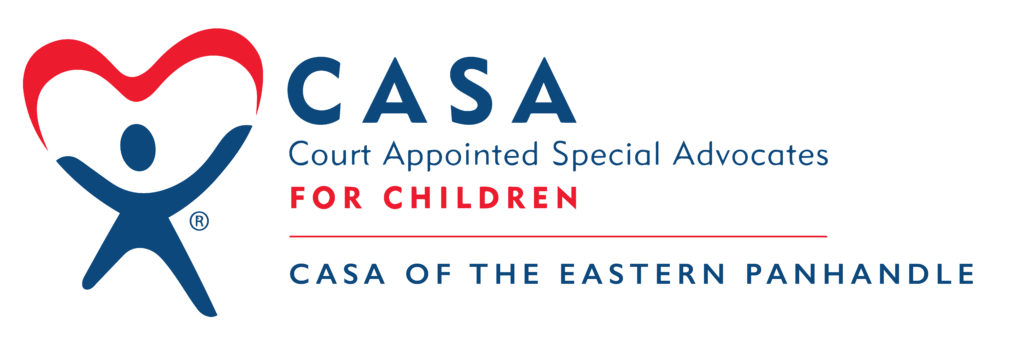Court Appointed Special Advocates (CASA) of the Eastern Panhandle (CASA-EP) volunteers are crucial lifelines for children in the foster care system who have faced abuse or neglect. Often stepping in during some of the most challenging times in a child’s life, CASA volunteers serve as the child’s voice in the courtroom, prioritizing their needs and well-being in a system that is often overwhelmed.
Why CASA Volunteers Matter
CASA volunteers are appointed by a judge to advocate for a child’s best interests as they navigate the complexities of the foster care system. Unlike other roles in the child welfare system, a CASA has just one focus: ensuring that the child’s voice is heard and that their best interests are considered above all else. By building a trusting relationship with each child, CASAs provide the stability, attention, and support that foster children often need, especially as they move through placements or other transitions.
Research shows the profound impact a CASA can make:
- Academic Success: Children in foster care who have a CASA are more likely to perform better academically, with improved attendance and achievement.
- Safe, Permanent Homes: CASA involvement doubles the likelihood of a child finding a safe and permanent home, which is often the ultimate goal for children in foster care.
- Reduced Risk of Re-entry into Foster Care: Children with CASA advocates are half as likely to re-enter the foster care system. CASA volunteers provide stability and continuity, which are essential for a child’s healing and long-term well-being.
What CASA Volunteers Do
CASA volunteers play a unique and active role in the life of a child in foster care. After completing a comprehensive training program, they are assigned to a child’s case by a judge and begin their work by gathering a full picture of the child’s circumstances. CASAs do this by meeting with the child, speaking with family members, foster parents, teachers, and other important figures in the child’s life to understand their needs and situation.
Once they have an understanding of the case, CASA volunteers advocate for the child’s best interests, offering recommendations and insights in court that influence decisions about the child’s placement, services, and overall care. This advocacy is critical for ensuring that the child receives the resources, stability, and support they need to thrive.
Who Can Become a CASA Volunteer?
CASA volunteers come from all walks of life. No specific professional background or experience is required—only a commitment to advocating for children and a willingness to undergo training. CASA-EP provides comprehensive training sessions that prepare volunteers to understand and navigate the child welfare and court systems. The training equips CASAs with the knowledge they need to effectively represent a child’s best interests.
Volunteers are supported every step of the way by CASA-EP staff and fellow advocates, and each volunteer’s caseload is manageable, allowing them to truly dedicate themselves to each child. Recently, CASA-EP has welcomed volunteers with diverse backgrounds, including retired attorneys, teachers, nurses, business professionals, and even former foster children who bring unique perspectives to their advocacy work.
How You Can Get Involved
If you’re ready to make a life-changing impact, becoming a CASA volunteer could be the perfect opportunity. CASA-EP holds regular information sessions and training opportunities for those interested in joining this rewarding role. The next training session for new CASA volunteers will begin soon, and CASA-EP invites anyone who has a passion for helping children to consider applying.
You don’t have to navigate this journey alone. CASA-EP provides a robust support network to ensure that each volunteer is equipped, encouraged, and empowered to make a difference.
To learn more about becoming a CASA volunteer, visit www.mycasaep.org. Your voice could be the one that changes a child’s future, giving them hope, support, and a chance for a brighter tomorrow.




